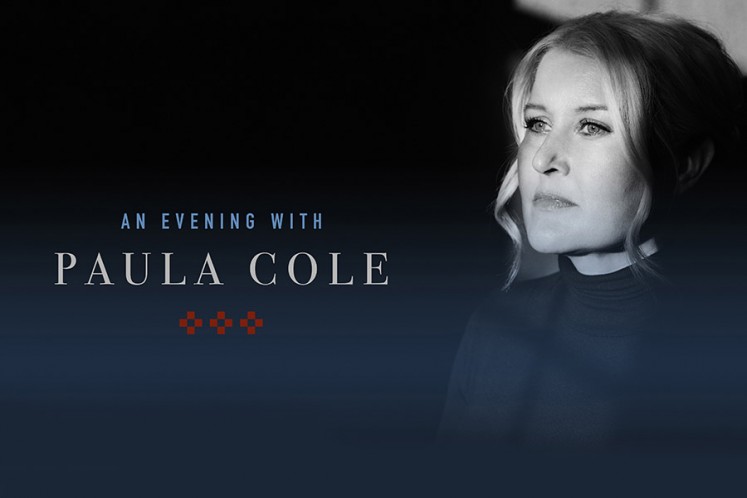An Evening with Paula Cole
Singer/songwriter Paula Cole’s father was a teacher who played bass in a polka band called Johnny Prytko and the Connecticut Hi-Tones. He brought home Dolly Parton and Johnny Cash records and Cole learned to sing “Delta Dawn” as a child. By the time she got to the Berklee College of Music, she had decided she wanted to be a jazz singer. “I loved jazz, but I ran into inner psychological walls,” she said. “I felt some ‘imposter syndrome’ being a white person singing an African-American art form. It led me to the truth that I needed to write my own music, so I left the path of jazz and began writing and recording my own songs.”
Forging her own path has become a hallmark of Cole’s career. She first garnered attention as a vocalist on Peter Gabriel’s 1993-1994 “Secret World” tour. Her sophomore album, This Fire, peaked at 20 on the Billboard 200 album chart and produced two hit singles, the triple-Grammy nominated, “Where Have all the Cowboys Gone?” and “I Don’t Want to Wait,” which became the theme song for television’s Dawson’s Creek. She won the Grammy for Best New Artist in 1997.
Cole recently released her eleventh album, American Quilt, in which she brought her insights into American history and its musical roots to bear. She has taken a selection of classic songs, each one a song that illustrates America’s cultural lineage. Songs such as “Shenandoah,” the gospel folk song, “God’s Gonna Cut You Down,” and “Black Mountain Blues” take audiences through America’s past in Cole’s unique way. “I wanted this album to reflect a patchwork of music from the cities and the mountains, the fields and the rivers, from movies to melodies that traversed oceans, centuries, cultures and continents, sewn together with our collective heartstrings,” she said.
The work is a trip through America’s musical heritage, with the blues, jazz, folk, pop and gospel all playing a role. The album has one original composition, “Hidden in Plain Sight (I Dream.)” It’s based on research she did into stories about slave quilts. “It is said that women artists created clues and secrets within their quilts and hung them in plain sight for other slaves seeking to flee to the Underground Railroad,” she said. “The quilts served as education and guidance for the journey, and it was women’s work, so nobody paid attention. It was a radical act!”
Cole has always been a champion of women and a pioneer, as well. In 1997, the same year she won the Grammy for Best New Artist, she was the first solo woman, without collaborators, to be nominated as Producer of the Year. “I knew I needed to stay true to myself,” she said. “It was so integral to the music. Not to produce would be like cutting off my arms or something.”
Today, as a visiting scholar at her alma mater, Berklee, she tells her female students to “think like a producer, think about how you want the whole track to sound. Be a voice.”
For American Quilt, Cole chose songs that reflect the diversity of music that makes up her being. “I want to go beyond genre,” she said. “That is the ethos of my life. I don’t like being in boxes. I’ve always been difficult to categorize.”

